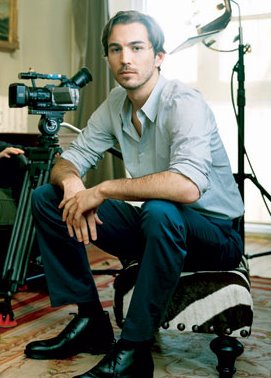The Smooth Life

My friend sent me a link to a podcast a few months ago from The Moth, a series that features true stories told live. The storyteller was Jamie Johnson, a documentary filmmaker who made Born Rich and The One Percent. Because I am the world’s slowest emailer, I only listened to it this morning, but I was so glad I finally did.
Johnson tells the tale of how he and his father became estranged after the debut of his first film. When, after months of silence, the two finally sat down together, his father told him, “You just don’t get it, Jamie… there’s a reason why rich people don’t talk about money.” When pushed to explain what he meant by this, Johnson’s father just pulled a mysterious videotape marked “1972” from his bookshelf, handed it to his son and left the room.
The tape turned out to be a documentary film critical of the family’s business dealings in South Africa during apartheid. In the credits, Johnson discovered his father listed as a producer. Eventually, his father told Jamie the story of the film, and how, after it was released, the family company’s CEO called to reprimand him. “Life isn’t going to go well for you if you keep working against the world that you’re a part of,” the CEO told him. And at that moment, Johnson’s father made a choice to change.
Johnson concludes his story by saying, “For my whole life I’ve known a father who’s never worked against the world that he’s a part of. In some ways, that’s the ultimate benefit of being really rich. You can always take the path of least resistance, and have a very smooth life.”
I think this may be one of least often acknowledged truths about wealth, though it’s also one of the most relevant for those of us who try to use our access for social change. Class privilege, especially when it is combined with white privilege, means our activism always comes with a choice. There is a protective world of wealth, a “smooth life,” we have the option of retreating to. If we back down, we are shielded from the consequences of abandoning the struggle in a way most others aren’t. We may believe in change with all our heart, but we are still protected by the status quo.
That said, becoming a class traitor is no small thing, and what the CEO told Johnson’s father was not an idle threat. Things can get pretty complicated, at least in my own experience. On the one hand, I’ve disavowed the core principle of my upper class background—the preservation of wealth. On the other hand, if I want to leverage my connections and access for social justice, I need to preserve my ties to that world. And then there is always the trickiness of making sure my family knows how much I love them, even when, politically, we’re on opposite ends of the spectrum. The older I get, the more I understand that this work is a life-long struggle, and it isn’t always easy to keep it up. Sometimes it helps me to remember that the privilege opt-out is exactly why I’m fighting in the first place. The fact that we can give up is the very reason that we can’t.
Karen Pittelman is a former RG program coordinator, author of RG’s Classified and co-author of Creating Change Through Family Philanthropy. She lives in her hometown of New York City, where she works as a writing coach.
